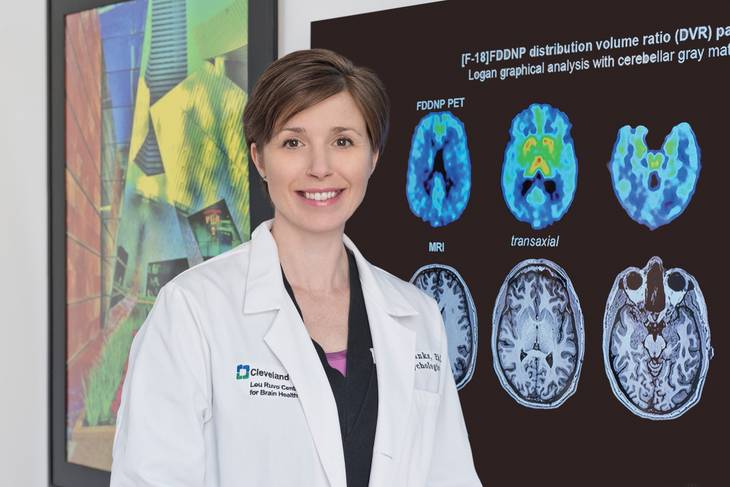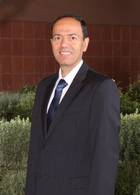Welcome to our 11th edition of Health Care Headliners. It’s our chance to introduce you to a few people who are making a big difference in local health care.
The names came from nominations that we accepted on vegasinc.com and resulted in bringing to us some truly outstanding people who have helped hundreds, if not thousands, of our friends and neighbors.
Some of our honorees this year are quite accustomed to seeing their names in headlines. VEGAS INC is happy to give a tip of the hat to Shelley Berkley, CEO and senior provost of Touro University Western Division. Her efforts with the medical school have helped it become one of the fastest-growing medical schools in the Western United States. Meanwhile, Ward 1 Councilwoman Lois Tarkanian has been instrumental in helping the Las Vegas Medical District evolve.
A lot of fascinating research is being done at the Cleveland Clinic Lou Ruvo Center for Brain Health. Dr. Sarah Banks has tapped into some very “Vegas” resources — studying the ways that a sommelier’s brain reacts to sense and memory and striving to understand head trauma in athletes who practice combat sports. It’s her hope that the Professional Fighters Brain Health Study will have global reach.
Stories about the challenges Southern Nevada faces regarding health care abound — many of our honorees have felt the same frustrations. It’s an incredible bright spot on our medical landscape to have the Children’s Heart Center Nevada in the region. Founded by Dr. William Evans, the center has grown into one of the largest pediatric congenital cardiology practices in the United States.
Please don’t take my word for it, though; there are more people being honored in these pages. I hope you’ll enjoy learning about them as much as we did. A special thanks goes to our sponsors: Comprehensive Cancer Centers of Nevada, Roseman University, UMC and Desert Radiology. We appreciate their support and important role in the health care industry.
-
LIFETIME ACHIEVEMENT
Dr. William Evans
Founder and co-director
Children’s Heart Center Nevada
As founder of Nevada’s first pediatric cardiology practice, Dr. William Evans has been helping to care for the state’s littlest hearts for 37 years.
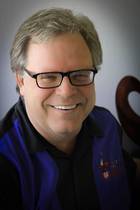
William Evans
The health care visionary — who established Children’s Heart Center Nevada in 1980 as a solo operation — is an outspoken champion for children with congenital heart conditions, having grown his practice to now include 20 physicians with 150 employees at three locations in Southern Nevada as well as offices in Reno and Carson City. One of the largest pediatric congenital cardiology practices in the United States, CHCN encompasses fetal cardiology, interventional cardiology, electrophysiology, congenital cardiac surgery, pediatric obesity and basic scientific research programs.
“Oftentimes, children who are born with heart problems can lead full healthy lives after they receive treatment, whether they require surgery or some other sort of procedure such as heart catheterization, so we feel like we can really make a difference,” said Evans, who earned his medical degree from the University of California, Irvine, and completed his internship, residency and pediatric cardiology fellowship at Children’s Hospital Los Angeles, prior to relocating to Southern Nevada. “At the time, there was no full-time cardiologist in the entire state of Nevada.”
Inspired to pursue a career in medicine in part because he visited a state hospital and was appalled by the deplorable conditions — particularly for children — Evans said CHCN has some 50,000 patient contacts per year.
According to the Centers for Disease Control and Prevention, congenital heart defects are the most common types of birth defects, affecting nearly 1 percent — or about 40,000 births per year — in the country. But survival rates and medical care for children with critical congenital heart defects are improving, according to the CDC. Between 1979 and 1993, about 67 percent of infants with critical congenital heart defects survived to one year, whereas between 1994 and 2005, that figure jumped to 83 percent.
Indeed, “In the late 1980s, we really began to expand our services,” Evans said. “Prior to the early 1990s, we did not perform heart surgery on children anywhere in Nevada. Now we treat about 1,000 patients per year with heart surgery or heart catheterization or other invasive procedures. We used to perform complex surgery and it was high risk because the equipment and expertise had not been developed. Now we’re doing complex surgery and it’s low risk, and 98 percent of children who undergo cardiac procedures have a positive outcome.”
Heart valves can now be placed with catheters, rather than surgery, Evans said, and electronic devices such as pacemakers work better than ever before. Moreover, a great deal of scientific research is being conducted in the genetics of congenital heart disease.
Evans said that soon it will be possible to grow parts of the heart — or even the entire heart — from the patient’s own cells.
“These days, if a child is born with a heart defect, we have to replace the defective parts with foreign material (which can be rejected),” he said. “But if you grow their own replacements parts with their own stem cells they will last a lifetime. Advancements in science and technology will help us achieve better and better outcomes.”
Evans was also instrumental in the 2001 creation of the Children’s Heart Foundation, which was founded by Nevada pediatric cardiologists and parents of children with heart conditions. The foundation has four primary objectives — providing a carefree camp experience for children with heart conditions; educating health care professionals and the general public on pediatric cardiology issues; advocating for research in the area of pediatric cardiology; and lending support to families as they deal with the emotional and financial toll exacted by a child’s heart condition. The Children’s Heart Foundation now serves prenatal heart babies at birth up to adulthood and is committed to inspiring a better quality of life.
“For parents with a child who has a heart condition — whether the child needs major surgery or a minor procedure — it can be the most traumatic thing they have ever experienced,” said Evans, who said the rewards he reaps cannot be put into words. “When you tell a family that their child has a potentially lethal problem, but we can fix it, and with every likelihood that child will be fine for the rest of their life — yes, it’s pretty rewarding. It’s hard to describe the feeling when parents hug you and thank you for saving their child’s life.”
— Danielle Birkin
-
RESEARCH / SCIENCE
Dr. Sarah Banks
Head of Neuropsychology Program
Cleveland Clinic Lou Ruvo Center for Brain Health
Since being recruited in 2011 to lead the neuropsychology program for the Cleveland Clinic Lou Ruvo Center for Brain Health, Dr. Sarah Banks has not only grown the size and scope of the institution’s research into neurological diseases such as Alzheimer’s and Parkinson’s, but has also contributed to several high-profile studies in an effort to increase understanding of brain diseases with the goal of prevention and potential cures.

Dr. Sarah Banks of the Cleveland Clinic Lou Ruvo Center for Brain Health is among the 2017 Health Care Headliner honorees. Banks is the head of the neuropsychology program.
“As an undergraduate, I became interested in the brain and how different behaviors and abilities are dictated by how the brain has developed and how healthy it is,” said the London native, who holds a Ph.D. in clinical psychology, with an emphasis in neuropsychology, from Northwestern University’s Feinberg School of Medicine. She completed a pre-doctoral internship at the University of Chicago; and participated in a post-doctoral fellowship at Montreal Neurological Institute. “There’s so much we don’t know about the brain, so it’s a frontier in science with so much to discover.”
Among other endeavors, Banks continues to serve as one of three project leaders for Cleveland Clinic and UNLV’s $11.1 million Center of Biomedical Research Excellence grant, awarded in 2015. The five-year grant — from the National Institutes of Health and the National Institute of General Medical Sciences — is the first of its kind in Southern Nevada, with Banks leading the initiative to use neuropsychology and advanced imaging techniques to understand commonalities between Alzheimer’s and Parkinson’s.
Banks is also continuing to make advances with research on the correlation between repetitive head trauma and the alteration of brain structure and functionality in combat athletes such as boxers and mixed martial artists as measured by the clinic’s Professional Fighters Brain Health Study. The study will help better protect current and former athletes around the globe.
“This is the largest study on contact sports in the world, and could only be done in Las Vegas, which is the fight capital of the world,” said Banks, adding that sub-studies have revealed that the part of the brain known as the thalamus — “the transportation hub of the brain” — tends to be smaller in fighters.
In the past year, Banks has also generated national attention for the “Your Brain on Fine Wine” research study, which compared the brains of 13 master sommeliers to 13 non-wine experts, revealing that the parts of the brain used for memory and smell — also the region commonly affected by Alzheimer’s — were bigger in master sommeliers.
Banks is also working on studies to determine the differences in AD between men and women.
“There hasn’t been as much money put into finding cures for neurological diseases as for, say, cancer, but I think there will be advancements in treatment of symptoms in the next five years,” she said.
— Danielle Birkin
-
PHYSICIAN
Dr. Samer Nakhle
Endocrinologist
Palm Medical Group
With 20 years of experience in the health care industry, Dr. Samer Nakhle is among the leading endocrinologists in the valley, advancing the research, prevention, management and treatment of glandular diseases such as diabetes and thyroid conditions including cancer, and cholesterol disorders.
Samer Nakhle
A native of Syria, he received his medical degree at Damascus University Medical School. Nakhle completed his residency at St. Barnabas Hospital in New York and completed a fellowship in endocrinology at University of Nebraska Medical Center.
He chose endocrinology because of the various opportunities afforded in the field — he has the ability to do in-office procedures like ultrasounds and FNA (fine needle aspiration) biopsies as well as conduct research and explore the latest technologies such as CGMs (continuous glucose monitors) and insulin pumps.
Nakhle moved to Southern Nevada in 2000 to join the endocrinology staff at VA Southern Nevada Healthcare System, eventually serving as chief of research, and founded Palm Medical Group in 2007. He also launched the Palm Research Center.
“I started Palm Medical Group alone and have recruited a physician every year, and now have nine providers in two locations,” said Nakhle, adding that he was successful in recruiting from the national pool of fellowship graduates to further expand endocrine availability in Southern Nevada. “On the research side, I started with one research coordinator and we now have 32 employees. We’re one of the top three research organizations in town right now, participating in about 25 different drug-company protocols per year.”
This includes participation in a National Institutes of Health-funded study (TrialNet) to prevent Type 1 diabetes and stop the progression by preventing insulin production before and after diagnosis.
“I find managing Type 1 diabetes mellitus to be significant since the patients are usually young people that have this autoimmune disease,” Nakhle said. “The recent research in treating Type 1 diabetes is making a significant impact on the lives of these patients, and advances in newer insulins and the improvement in technology are making a huge improvement for patients with this disease.”
Nakhle is also focusing on thyroid cancer treatment and development of a comprehensive program to care for patients from initial diagnosis through surgery preparation and post-operative management, and has managed more than 500 thyroid cancer cases since 2007, with the goal of making Las Vegas a renowned location for thyroid cancer management. He is also developing an alternative treatment for parathyroid adenomas when the patient is not a surgical candidate.
With a passion for education, Nakhle is also a core faculty member and section chief of endocrinology of the new MountainView Hospital GME program.
“Residents spend a month shadowing me, so we’ve adding a teaching component to the medical practice as we continue to teach future physicians in the field,” he said.
— Danielle Birkin
-
VOLUNTEER
Dr. Paul Lanfranchi
Founder and CEO
The Lanfranchi Center
As founder and CEO of the Lanfranchi Center — a private medical practice dedicated to plastic surgery and rejuvenation of the face and neck — Paul Lanfranchi is in the business of making people look better on the outside.

Paul Lanfranchi
And with his commitment to philanthropy and giving back, Lanfranchi is helping people feel better on the inside as well.
“Everything we do at the center is
100-percent elective on a cash-for-services basis, so it was a priority for me to find a way to directly give back to the community,” said Lanfranchi, who graduated from the University of Medicine and Dentistry of New Jersey, School of Osteopathic Medicine; completed a general surgery internship at Temple University; then returned to UMDNJ for four years of specialization in facial plastic surgery, otolaryngology and head and neck surgery. “So we partnered with the American Cancer Society in March of this year to create the TLC Lift For Life program, which provides transportation services for cancer patients to get to their treatments.”
A bit of a play on words — the TLC Lift is the center’s most popular procedure — TLC Lift For Life complements the American Cancer Society’s Road to Recovery transportation program. When volunteers with Road to Recovery are unable to fulfill a ride request, TLC Lift For Life provides free taxi transportation for patients to and from cancer care appointments. The new program is expected to provide service for about 35 percent of the current local unmet patient ride requests. The center donated $50,000 to get the program up and running.
“We are honored to be able to continue to work with the American Cancer Society and give back to the Las Vegas community in such a life-giving way,” said Lanfranchi, who founded the center in 2015. “On a continual basis, for every TLC Lift we perform here at TLC, we will be donating $100 to this amazing program. That amounts to thousands of dollars per month.”
The Lanfranchi Center has also supports the American Cancer Society by accepting new wigs, scarves and hats on behalf of the society’s Cancer Resource Center. TLC also participates in the Look Good Feel Good program where volunteer beauty professionals share beauty tips with female cancer patients who are undergoing chemotherapy and radiation treatments.
“Setting up your own practice is a ton of work, but in retrospect, being able to set up this charity is the thing I’m most proud of,” said Lanfranchi, who also hopes to be able to donate his services. “My goal by year’s end is to be able to offer free cosmetic procedures to cancer survivors. Cancer treatment is physically and mentally draining, and can also take a toll on a patient’s appearance. Cosmetic rejuvenation is like icing on the cake after beating cancer — when what they see in the mirror matches how they feel inside.”
— Danielle Birkin
-
COMMUNITY OUTREACH
Favil West
Co-founder and president
The Foundation Assisting Seniors
In the 15 years since he co-founded the Foundation Assisting Seniors with Chuck Davis, Favil West has made a significant difference in the lives of many people.
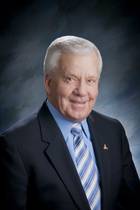
Favil West
The nonprofit organization assists the senior community in times of illness, recovery, confinement at home, coping with loss of a loved one and other senior challenges, as well providing assistance with everyday tasks such as household maintenance and transportation.
One facet that stands out is the Foundation’s HowRU program, a free service that provides a daily call to subscribers to ensure that they are well, bringing peace of mind to seniors and their families. Recently, HowRU received endorsements from fire and police chiefs in Henderson and North Las Vegas.
West continues to direct several committees to ensure all aspects of the lives that he serves are taken care of. These include:
• The Equipment Committee, which maintains and delivers an inventory of durable medical equipment for short-term loan.
• The Home Maintenance Committee, which provides minor home maintenance services for those unable to safely perform them.
• The Transportation Committee, which drives seniors to health service appointments or the grocery store.
• The Home Assistance Committee, which maintains a resource directory with information on fee-based services.
“Our accomplishments in 2016 were many,” said West, “however we are most proud of being able to provide services to over 30,000 seniors in Southern Nevada. In addition, we launched the Medication Reminder program, a service that calls seniors to remind them to take their medication.”
The increase in people older than 65 caused a growth in assistance requests by more than 10 percent last year, West said. “This presents a challenge for the foundation, in terms of both service and funds, to meet these requests in a timely manner.”
Over the past few years, health care, both from a medical and non-medical standpoint, has improved dramatically. “We believe that providing our neighbors with durable medical equipment, transportation and other services often allows them the ability to spend more time in their home and less time in a form of assisted living,” West said. “We still find that in many cases seniors are not given proper respect, and are required to wait long periods of time before seeing their health care provider. Having said that, today we are seeing more doctors, nurses, and facilities become available for the care for seniors.”
During the months to come, West’s primary focus will be on education. “Seniors are considered the gullible portion of our society, and as such scammers prey upon them,” he said.
“In order to educate seniors with respect to the various scams that could impact them, the Foundation Assisting Seniors will introduce education seminars that provide information on how to avoid fraud, elder abuse, identity theft, and multiple other issues.”
— Howard Riell
-
INNOVATION
Lois Tarkanian
Councilwoman, Ward 1
City of Las Vegas
Established by the Las Vegas City Council in 1997, the Las Vegas Medical District saw limited development for years. Today, under Councilwoman Lois Tarkanian’s leadership and persistence, it is evolving as one of the most important economic development projects in Southern Nevada, while lifting the quality and access of health care in our community.
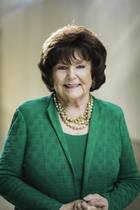
Lois Tarkanian
Indeed, by 2030 the LVMD is expected to have an economic impact of $2.42 billion, generate more than 16,000 jobs, and create state general fund revenues of more than $121 million, according to Tripp Umbach, a national economic consulting firm.
The year just passed was one of “significant progress that began with a branding and master-planning initiative to create and start building an identity for the Las Vegas Medical District,” said Tarkanian. “This involved convening the marketing and planning professionals of all the major entities in the district — including the UNLV School of Medicine, the hospitals and other major medical providers — to develop and enact a plan to start putting the district on the map and strategically planning the area for growth. This group worked very collaboratively, and has successfully started to build awareness, excitement and support for the Las Vegas Medical District.”
Tarkanian recalls that in the 1980s she was diagnosed with lupus, an autoimmune disease. It was, she said, “a long and arduous journey to diagnosis, as no doctor in Las Vegas could figure out what was ailing me. With the help of Dr. Elias Ghanem, a well-known local doctor, I visited UCLA Medical Center, where I was immediately diagnosed and treated.”
Unfortunately, she said, “this storyline has been all too common for many in our community. It’s not a reflection of the quality of our local doctors; it’s a reflection of the lack of doctors here, particularly those with specialty practices.”
Thanks to the UNLV School of Medicine and the establishment of an academic health center with an emphasis on research, Tarkanian said, “Those who are ailing in our community will soon enjoy access to a wider range of specialty doctors and care. That, coupled with the fact that this is Las Vegas, will soon transform the storyline altogether.”
Tarkanian said she envisions a day when others from out-of-market come here to receive top medical care. “It’s not just a pipe dream, it’s a reality. Very soon, medical tourism will increase its impact on our economy thanks to significantly improved medical care in our valley.”
Tarkanian’s primary goal for the LVMD this year is to help it grow by ensuring its infrastructure is in place. She is working closely with the public works department to beautify the area, improve medians and landscaping, and ensure it is properly entitled and zoned to accommodate future growth to meet the needs of the community.
— Howard Riell
-
EDUCATION
Dr. Krystal Riccio
Associate Professor of Pharmacy Practice
Roseman University of Health Sciences
Previously, as a student co-founder of Roseman University’s Drug Abuse Awareness Team (DAAT), and now the faculty advisor, Dr. Krystal Riccio has played a crucial role in more than a decade of drug abuse prevention in Southern Nevada.
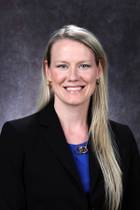
Krystal Riccio
Under Riccio’s leadership, DAAT engages students in youth substance abuse prevention programming in Clark County School District middle and high schools.
According to Riccio, 2016 marked a decade of drug abuse prevention at Roseman University. “It also marked a year of remarkable progress in helping our state come up with solutions to reduce drug misuse and abuse, especially among youth,” she said.
Information regarding drug abuse trends among Nevada’s adolescents is limited but suggests a worsening problem, she said. Current data are extrapolated from a small sampling of Nevada students performed every two years. “Though limited, these data suggest higher abuse rates among Nevada adolescents compared to national averages.”
Last year saw the launch of the Secondary Student Life Survey: Nevada (SSLS:NV), a survey that Riccio, along with a team at Roseman, developed specifically for Nevada with the input of national leaders in drug abuse and behavior research.
Riccio called expansion of SSLS:NV her top priority this year. Her team has been an advocate of legislation that would accomplish that.
“Passage of SB166 (which implements a survey to evaluate public school students’ attitudes and behaviors surrounding alcohol and drugs) will allow SSLS:NV to be expanded to all school districts. This will provide the baseline evidence within each urban, suburban, rural, and frontier community throughout Nevada that can be used to promote specific prevention messaging, through family, school, and community efforts. Further, recurrent administration of SSLS:NV will allow us to evaluate these efforts to develop evidence-based prevention strategies.”
A major emphasis is being placed on raising awareness in Southern Nevada about the dangers of storing unnecessary medications in the home, and the safe disposal strategies available. “Aggressive distribution of educational materials and drug-disposal pouches at health fairs and community events will help raise awareness. We are working to expand (the biannual program) into quarterly drug-disposal events with the Henderson Police Department and other agencies and organizations,” she said.
“While we continue to push for the passage of SB166, there has been some push-back from individuals that are concerned about ‘one more survey,’” Riccio said.
“Our goal is to provide a more usable dataset that allows for directed prevention strategies. Schools are hesitant to add the survey until they see the potential benefits. Many have expressed heightened interest, but need to work to coordinate where it may fit into the student’s instructional year.”
— Howard Riell
-
DENTISTRY
Dr. Susan Schmutz Smith
Dentist / Practice Owner
Susan Schmutz Smith, D.D.S.
Dr. Susan Schmutz Smith is a second-generation Nevadan who grew up in the Las Vegas valley and attended Chaparral High School. As a teenager, she worked with her father, a local pediatric dentist, which gave her valuable experience and a love for dentistry.
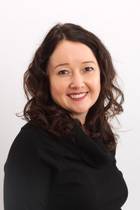
Susan Schmutz Smith
“My father was my mentor,” Smith said. “He was a pediatric dentist — Dr. Joe.
I grew up working in his office. He was amazing. I learned every job in the office. I learned to work hard and to be great at what you do. However, the trait I learned from him — that makes all the difference — is focusing on your patients; see what is fantastic and special about each one, and let them know it.”
Smith graduated from Brigham Young University with a bachelor’s degree in psychology and received her doctorate degree in dentistry at Creighton University.
She is accredited by the American Academy of Facial Esthetics and a member of the International Congress of Oral Implantology. She has appeared on the topDentists list every year since 2007.
Since opening her practice in 2002, Smith has built strong relationships with her patients. Smith is known as conservative and caring with treatment, and concerned about her patients’ well-being. Indeed, she said she prides herself on creating a warm and welcoming environment in her office.
Balancing high-quality care — her state-of-the-art office offers Cerac and cone beam CT technology — and affordable dentistry “is one great challenge,” Smith said. “Another is balancing running an office and taking care of my family and work family. I want to make sure all are taken care of and happy.”
She also understands the importance of educating the community on oral health as well as offering the best dental treatment possible. She is a member of both the American Dental Association and the Southern Nevada Dental Association, and lectures on infection control for dental professionals.
On top of that, she teaches oral hygiene to elementary and preschool students across the valley.
Smith’s plan for the months to come is a simple one. “My goal is to continue to grow and improve myself and my practice daily.”
— Howard Riell
-
NURSING
Dionne Bolderoff
Team Lead, Siena Urgent Care
Southwest Medical Associates
While patients of Southwest Medical Associates benefit from Dionne Bolderoff’s personal attention and professional expertise at the company’s Siena Health Care Center, she recently put her medical skills to work far outside the care center walls.
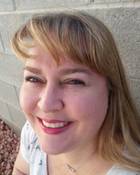
Dionne Bolderoff
Bolderoff and her husband Bill enjoy off-road races across the Southwest. The pair operate a “chase truck” to help broken-down vehicles. Typical tasks involve providing treatment for injuries during a race, helping vehicles that crash and towing them off the track so that others don’t hit them. Many of these races are far from population centers and available medical services, so participants have to be prepared for anything — like saving a life.
A Montana man suffered a cardiac event at a race in Parker, Arizona. The Bolderoffs provided mouth-to-mouth resuscitation and chest compressions as well as using an automated external defibrillator to help stabilize the man. Today the man is doing well after having three stents placed when he was flown to Lake Havasu Hospital.
Dionne Bolderoff summed up the experience by saying “I’m so grateful we were in the right place at the right time.”
Health care in the Las Vegas Valley, Bolderoff said, is always evolving.
“It needs to be,” she said. “We have to think of innovative ways to get people the care they need with the resources we currently have. Las Vegas has again been named the third-fastest growing city in the U.S. We do not have an adequate number of doctors and medical professionals in the valley to care for this influx in population.”
Bolderoff added that she is excited to see developments like the new medical plaza being built in Henderson, and the opening of the new school of medicine at UNLV.
“We need to attract more medical professionals to the valley that want to call Vegas home,” she said. “We need people who are invested in our community. So many practitioners come to the setting I work in; they move here from out of state to practice, practice for a couple of years, and then choose to move back. We are constantly hiring new primary care providers, and losing them just as quickly. Patients get upset that there is no continuity of care because their primary care physician just doesn’t stay for long.
“For health care in the valley to improve,” Bolderoff said, “we need to find ways to retain our medical professionals.”
According to Bolderoff, a 20-year veteran of the health care industry, 2016 was “a year of innovation. I currently work in an outpatient urgent care setting. I came from a hospital in San Diego where we converted to all computerized charting in 1999. When I moved back to Las Vegas in 2002, the hospitals here were still doing paper charting. It was like going back to the stone ages for me.”
Over the years, she said, in the outpatient setting “we began using the electronic medical record more and more for things like sending prescriptions electronically to the pharmacy. Finally, 2016 brought us the electronic patient tracking board. With this tracking board, we did away with all paper charting. We can now track the entire patient visit with this board, from arrival to discharge. I know what rooms my staff are in, as well as where the providers are, just by looking at the board.
“It has simplified our process tremendously.”
— Howard Riell
-
MANAGER/ADMINISTRATOR
Shelley Berkley
CEO and Senior Provost
Touro University Western Division
Prior to joining Touro University as CEO and senior provost of the Western division, Shelley Berkley was an advocate for affordable health care and education, pushing these platforms in her role as U.S. Representative for Nevada’s 1st congressional district, a post she held for 14 years.
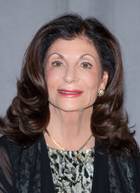
Shelley Berkley
“When I was first elected to Congress (in 1999), I became very aware of the disparity in access to health care for citizens in Nevada and in Clark County in particular,” said Berkley, adding that she also became a champion for children in the Clark County School District. “It became very obvious to me that unless a child has access to a good education, good nutrition and good health care, their prospect of being a successful adult diminishes dramatically.”
Fast-forward to 2013, and Berkley combined her passion for health care and education when she was tapped to join Touro’s executive team.
In her current role, she oversees two of the fastest-growing medical schools in the Western United States — the local Henderson campus and the location in Vallejo, Calif.
— as well as allied health science and education programs with a current total enrollment of more than 3,000 students.
“As CEO, I’m tasked with making sure that this private, nonprofit, Jewish-sponsored institution is fiscally sound, profitable and successful, while as senior provost I’m tasked with ensuring that we provide the best possible education for the future health care providers for two states,” Berkley said. “In Nevada, in addition to our very successful medical school — for which last year we had 135 slots and 3,700 applicants — we have an equally successful physician assistant program, a nursing program, and physical and occupational therapy doctorate programs.”
Under Berkley’s direction, Touro recently received approval to expand its physician assistant program, is seeking approval to expand its medical school program and recently launched a nurse practitioner program.
“When I got here, Touro was one of the best-kept secrets in the valley, but I don’t think it’s a secret to anybody anymore,” she said. “We’ve really raised the profile of the school and also provide significant outside resources to enable us to deliver medical services to the community, which is part of our mission.”
Berkley spearheaded the initiative to fund the start-up of a Touro Mobile Healthcare Clinic, which provides free medical care to Southern Nevada’s homeless population and homeless veterans at facilities including Veterans Village, Catholic Charities and Jewish Federation of Las Vegas. Last year, she secured donations from the Englestad Foundation and MGM Resorts International to establish a second mobile clinic that serves clients and employees of Opportunity Village.
“We’d also like to expand our community outreach into the senior population so our students have the opportunity to provide geriatric care,” she said.
— Danielle Birkin
-
EMERGENCY SERVICES
Rob Richardson and Brian Rogers
Partners
Community Ambulance
Community Ambulance was envisioned and conceived by two local emergency medical service experts who wanted to create a compassionate medical transport company that would be driven by patient care rather than profits.

Rob Richardson
Rob Richardson and Brian Rogers formed Community Ambulance in 2009 after decades of EMS experience in Southern Nevada. CEO and partner Richardson was a former Henderson Fire Department division chief over special operations. COO Brian Rogers was a Henderson Fire Department EMS officer and one of the most knowledgeable and experienced EMS administrators in Southern Nevada, having written many EMS regulations still used today.
Community Ambulance has earned CAAS (Commission on Accreditation of Ambulance Services) accreditation, which is the highest industry standard for EMS excellence. The company is currently licensed to transport in Clark County, Henderson and Boulder City, as well as to and from all federal facilities and installations.

“After the amazing growth that Community Ambulance enjoyed in 2016, we will continue to ensure that we are running as efficiently as possible, and continue to deliver the best product to those in need of our services,” said Rogers. “Working with other community and health care leaders, we aim to ensure we are matching patients with the correct resource and not simply taking everyone to the ER. This will take several years to plan and implement but we’re starting right now.”
“We want to continue our growth goals by negotiating and finalizing mutually beneficial ambulance franchise agreements with other municipalities, while working closely with our community partners like the local fire departments, Public Education Foundation, Honor Flight and other wonderful and worthy community causes,” said Richardson. “In order to accomplish this, we will continue to support our employees with quality equipment, compensation and an environment of mutual respect. We have risen to a position of success by standing on the shoulders of our mentors. We hope to do the same for others so that the art of providing quality ambulance transportation is not lost. We are a community ambulance company.”
Rogers is convinced that health care is evolving in Southern Nevada at a very fast pace.
”With the potential repeal and replacement of Obamacare, access to affordable health care is an issue that will be at the forefront for years to come,” he said. “I believe we will see an increase in utilization of physician extenders throughout our community. We will see more community-style resources (in the form of) community hospitals.”
Richardson called health care a moving target. “What we know is that it is unsustainable in the condition it was in before ACA, and it is questionable if it is sustainable now. However, this allows care givers to be creative. As an ambulance provider, we are seeking new ways to provide care that will allow people to receive the best care in the least invasive manner.”
— Howard Riell
